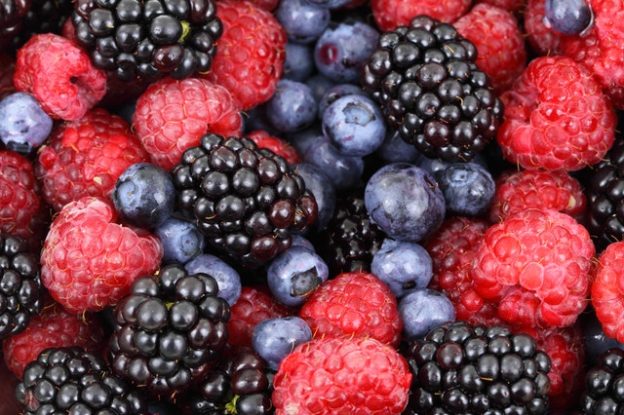(4 Minute Read)
What you eat has a great effect on how you live your daily life. Those who consume fatty foods and refined sugars are more likely to suffer memory issues and lethargy, while a highly nutritious diet helps keep us sharp, focused, and lively. Because your brain requires a nutritious diet to encourage healthy brain functions, it’s important for seniors to put a little bit of thought into what they consume, even when in a hurry. To help get started, here are 10 easily available foods you can add to your diet today.
- Blueberries
Is there anything better than fresh fruit? How about fresh fruit that also protects the brain from oxidative stress with antioxidants and can help improve memory–like blueberries? This fruit combats oxidative stress caused by too many free radicles in the brain. Oxidative stress has also been linked to Alzheimer’s disease meaning adding blueberries to your regular diet habits can help aging brains stay focused. Blueberries’ antioxidive power balance the brain, not to mention they make a good topping for breakfast cereal, oatmeal, and yogurt.
- Salmon
Salmon and other fatty fish like trout and mackerel contain Omega-3 fatty acids which promote bone and joint health as well as healthy brain functions. Also, scientists believe omega-3 fatty acids help protect against Alzheimer’s and dementia.
- Nuts
Pecan pie, almond joy, and peanut butter all demonstrate the versatility and deliciousness of nuts. However, these little snacks also do wonders for brains with loads of vitamin E to help fight cognitive decline, along with providing antioxidants and healthy fats. Any kind of nut will do the trick, but if you’re watching your sodium intake, don’t forget to check if they have been salted for flavor.
- Oatmeal
Oatmeal makes for a filling breakfast with many types and flavors. Like breads and brown rice, oatmeal is a whole grain. Whole grains actually help reduce heart disease risks and because of the brain’s dependency for good blood flow, by helping your heart you’re also helping your brain.
- Leafy Greens
Dark, leafy green vegetables each have their own blend of nutrients and good-for-the-body benefits. But all of these are rich in magnesium. This is an overlooked nutrient that most of the world is deficient in. These greens will help lift you out of brain fog and promote many other healthy bodily processes.
- Avocados
Avocados are one of the trendiest foods right now, but they serve many more benefits besides helping you keep up with the Joneses. This fruit is packed with healthy-fats (much like salmon) but it’s also rich in folate, which can help maintain cognitive function.
- Oranges
Vitamin C is well-known, but what may not be well-known is how vital it is to mental functions. Oranges famously contain Vitamin C but they also have antioxidants, like blueberries. Vitamin C is essential for brain cell health. Oranges, while delicious, are not the only place to get this vitamin and is also found in broccoli, pineapple, and kale.
- Asparagus
Asparagus’ natural supply of folate and B12 can help prevent cognitive issues and promote response time. When paired with other brain-boosting foods like salmon as a side-dish, this vegetable is unbeatable in terms of flavor and benefits.
- Mint
Mint reminds some of candy canes and a fresh-kick to any hot chocolate recipe, but natural mint is beneficial to health and still delicious. Mint-leaf tea, or even just the smell of the herb, can boost brain functions like problem solving and attention span length.
- Dark Chocolate
Sweet treats, like chocolate, can still be healthful. Milk and white chocolate may be loaded down with sugar and other non-nutritious ingredients, but natural dark chocolate provides many benefits to the body and the brain. Antioxidants and magnesium are just some of the components to dark chocolate that improve blood-flow and mental functions. But, watch out for tricky packaging that makes you think you’re getting nutritious dark chocolate, when really it’s also packed with sugar.
These foods are jam-packed with nutrients that support healthy brain functions. However, it’s important to remember that diet is a very personal topic. Be sure to consult your doctor or nutritionist before making significant changes to your diet. But, making the choice to eat brain-boosting foods is a great way to stay on top of the aging process and slow or even prevent a dementia diagnosis. If you’d like to learn more about dementia, consider reading our helpful guide, Causes of a Dementia Diagnosis and the Early Warning Signs You Should Know.
Leo LaGrotte
Life Settlement Advisors
llagrotte@lsa-llc.com
317-863-5936
Download our free resource, Causes of a Dementia Diagnosis and the Early Warning Signs You Should Know, to educate yourself to spot dementia before it arrives.





